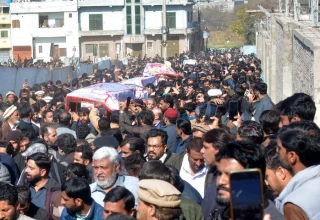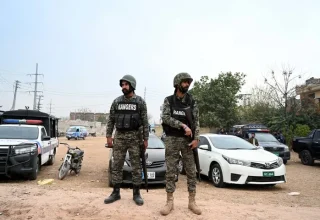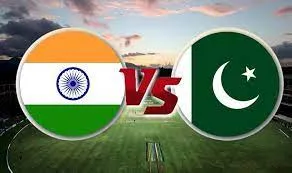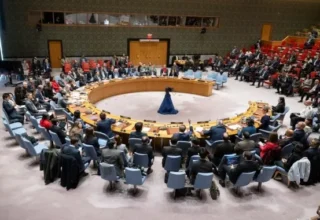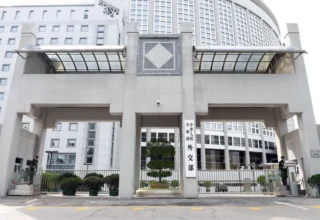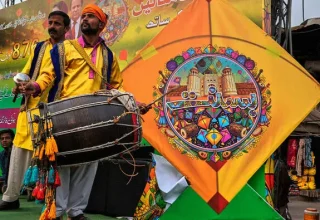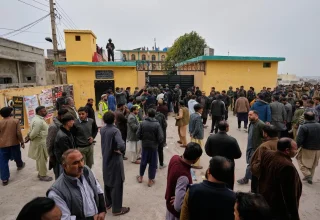
Recently, the government of Pakistan has made the decision to ban Imran Khan’s Pakistan Tehreek e Insaf party and initiate Article 6 proceedings against its founder, Imran Khan, as well as ex-president Dr Arif Alvi and former National Assembly deputy speaker Qasim Suri. This move comes under Article 17 of the Constitution, which grants the government the authority to prohibit political parties.
The reason for banning political parties is straightforward: they do not adhere to state policies and often oppose the state. They engage in conflicts with the state and law enforcement or collaborate with hostile foreign agencies. Those political parties facing a ban could simply rebrand themselves with a new name and commit to adhering to state policies. We’ve seen numerous instances of this happening in Pakistan.
Communist Party of Pakistan (July 1954)
The Communist Party of Pakistan (CPP) was one of the earliest political parties to face a ban, viewed as a threat during the Cold War due to its leftist ideology. Though the ban was later lifted.
Awami League (26 March 1971)
The Awami League, a key player in East Pakistan’s independence movement, was banned by the government due to connections with the Indian agencies (Mukti Bahini).
National Awami Party (1971 & 1975)
The National Awami Party (NAP) faced bans in the 1970s due to its progressive stance and push for provincial autonomy, which clashed with the establishment. Despite the bans, NAP members persisted in their political activism. The NAP was later revived as the National Democratic Party, which eventually evolved into the Awami National Party.
Jeay Sindh Qaumi Mahaz-Arisar (JSQM-A) (May 2020)
Representing Sindhi nationalist sentiments, JSQM-A was banned over accusations of separatism and violence.
Tehreek-e-Labbaik Pakistan (TLP) (April 2021)
TLP, known for its religious fervor and stance against perceived blasphemy, was banned, sparking nationwide protests and underscoring the tension between religious sentiments and law and order.
Muttahida Qaumi Movement (MQM)
Originally known as the Muhajir Qaumi Movement faced ban due to attacking civilians and multiple law enforcement officials, the MQM rebranded itself as the Muttahida Qaumi Movement.
While most bans on political parties have been imposed due to terrorism-related activities, it is noteworthy that no ban has remained permanent. Many parties have re-emerged under different names and continued their activities. For instance, the TLP was later de-proscribed by the Government of Pakistan (GoP). Following the enactment of the Anti-Terrorism Act of 1997 (ATA), the GoP has utilized Section 11B(1) of the ATA to designate political parties as proscribed organizations, including JSQM-A and TLP. History demonstrates that Pakistan is not unique in banning political parties; over 25 countries, including Russia, China, and the USA, have taken similar measures. These bans often target parties that oppose the state, engage in violence, attack law enforcement, or collaborate with foreign agencies. Let’s delve into this phenomenon further.
List of Banned Political Parties by Countries and Their Reasons:
Throughout history, various countries have banned political parties for reasons ranging from threats to national security to involvement in violent activities.
Russia In Russia, several political parties have faced bans due to their extremist ideologies and activities. For instance, the National Bolshevik Party was banned for promoting extremist views and inciting violence. The government has consistently acted against groups perceived as threats to state stability and public safety.
China China has a long-standing practice of banning political parties that challenge the Communist Party’s rule. The Democratic Party of China, for example, was banned for its pro-democracy stance and opposition to the one-party system. Beijing justifies these bans as necessary to maintain social harmony and prevent unrest.
United States In the United States, the Communist Party faced significant suppression during the Cold War era under laws like the Smith Act, which targeted groups advocating the overthrow of the government. While outright bans are less common today, certain extremist groups have been designated as terrorist organizations, limiting their activities.
Turkey In Turkey, several Kurdish political parties have been banned, including the People’s Democracy Party (HADEP), for alleged ties to the Kurdistan Workers’ Party (PKK), which is considered a terrorist organization. The bans are often justified on grounds of national unity and counterterrorism.
Germany Germany has a robust legal framework for banning political parties that threaten the democratic order. The National Democratic Party (NPD) has faced multiple attempts at banning due to its neo-Nazi ideology. While these efforts have had mixed success, the government continues to monitor and restrict extremist groups closely.
Egypt In Egypt, the Muslim Brotherhood was banned following the ousting of President Mohamed Morsi in 2013. The government accused the group of inciting violence and terrorism. This ban reflects the state’s stance against political Islam and efforts to maintain secular governance.
Hong Kong Following the 2019 protests, the Hong Kong National Party, which advocated for Hong Kong’s independence, was banned under the Societies Ordinance. The government cited national security and the need to curb separatist sentiments as reasons for the ban.
Iran In Iran, political parties opposing the Islamic Republic’s principles, such as the People’s Mujahedin of Iran (MEK), have been banned. The government labels these groups as terrorist organizations, accusing them of violent activities and collusion with foreign enemies.
Iraq Iraq has banned the Ba’ath Party, which was the ruling party under Saddam Hussein, due to its association with dictatorship and repression. The post-2003 government sought to prevent any resurgence of Ba’athist ideology and ensure a democratic political landscape.
Spain In Spain, the Basque separatist party Batasuna was banned for its alleged links to the terrorist group ETA. The government acted to curb separatist violence and uphold national unity, using legal measures to suppress parties supporting terrorism.
Sri Lanka Sri Lanka has banned several Tamil political parties, including the Tamil Tigers (LTTE), due to their involvement in terrorism and separatist activities during the civil war. The bans aimed to dismantle the insurgency and restore peace and order in the country. Across the globe, governments have resorted to banning political parties that pose threats to national security, public order, or democratic principles. While the specific reasons and legal justifications vary, the underlying motive remains consistent: to safeguard the stability and integrity of the state.
Banning Political Parties in Pakistan:
Constitutional Perspectives: In Pakistan, the regulation and potential banning of political parties are governed by specific articles within the Constitution, reflecting the importance of maintaining national security and sovereignty. The legal framework ensures that while political pluralism is upheld, any party acting against the state can be subjected to legal scrutiny and action.
Constitutional Provisions: Article 17 of the Constitution of Pakistan grants citizens the fundamental right to form associations, including political parties. However, this right is not absolute and comes with certain restrictions aimed at preserving the integrity and security of the nation. Article 17(2) specifically states, “Every citizen shall have the right to form associations or unions, subject to any reasonable restrictions imposed by law in the interest of sovereignty or integrity of Pakistan, public order or morality.”
Grounds for Banning a Political Party: According to the Constitution and relevant legal provisions, a political party can be banned if it is found to be working against the sovereignty and integrity of Pakistan. The process involves thorough investigation and legal proceedings to ensure that the actions of the party in question pose a genuine threat to national security and public order.
The law in Pakistan provides a clear pathway for the banning of political parties that act against the state, emphasizing the balance between political freedom and national security. Article 17(2) of the Constitution encapsulates this balance, ensuring that while political parties have the right to operate, this right is curtailed when it poses a threat to the country’s sovereignty and integrity. This legal mechanism serves to protect the nation from internal threats while upholding democratic principles.






